December 2016 Edition
December 2016 Edition Joy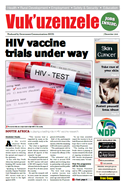
Translations
About care dependency grant
About care dependency grant lebangIf you care for a child who has a severe disability and is in need of full-time and special care, you may qualify for a child dependency grant.
The care dependency grant covers disabled children from birth until they turn 18.
To qualify you must:
- be a parent, primary caregiver or a foster parent appointed by the court.
- be a South African citizen or permanent resident.
- not earn more than R180 000 a year if you are single. Your combined income should not be above R360 000 a year if you are married.
Note: This income limit does not apply to foster parents.
The child must:
- be younger than 18 years.
- not be cared for permanently in a state institution.
- have a severe disability and need full-time and special care.
- Both you and the child must live in South Africa.
Note: A state medical officer must assess the child before the grant will be approved.
How to apply
Visit your local SASSA office and bring the following:
- Parent/s, primary caregiver, or foster parent/s bar-coded ID.
- Child/ren’s birth certificate.
- A medical report for the child, which must say what the child is able to do – this is known as a functional assessment.
- If you are the foster parent of the child, the court order making you the foster parent.
- Proof of your marital status, such as a marriage certificate, divorce papers, or a death certificate of your spouse, or a sworn statement (affidavit) if you have never married.
- Proof of your income and if you receive a care dependency grant, the primary caregiver must ensure that the child:
- Be tested at the age of six years to see whether he or she needs special schooling.
- Receives appropriate education according to the level of disability.
- Remains in their care.
- Lives in adequate housing.
- Is fed and given clothes to wear.
- Receives the necessary medical and dental care.
- Not be in a wholly-funded state-run institution.
How long does it take?
- It may take up to three months to process your application.
- If your grant is approved, you will be paid from the date on which you applied.
How much does it cost?
The service is free.
Beware of fraudsters
Beware of fraudsters andile“As we get closer to the festive season people need to be aware of scams that could rob them of their money.”
City Power is warni-ng residents of Johan-nesburg to be on the lookout for three men pretending to be employees of the energy utility.
The three target prepaid meter customers and pretend that they are employees of City Power. They then threaten customers that if they do not pay them for their electricity bill, they will cut their power supply. Customers are urged not to make any cash payments to contractors or officials requesting money for outstanding electricity bills; instead customers are encouraged to make payments only at the City of Johannesburg customer walk-in centres or at the utility’s offices.
The utility has partnered with authorities on an anti-corruption drive to eliminate criminal incidences like these from recurring. The anti-corruption aims to fight against corruption and misconduct on the part of its officials, service providers and customers.
To date, 851 cases have been registered with SAPS and the prosecuting authorities relating to cable theft, malicious damage to property and meters. Cases include domestic and large power users. As many as 782 arrests have been made and there have been convictions in 274 cases. 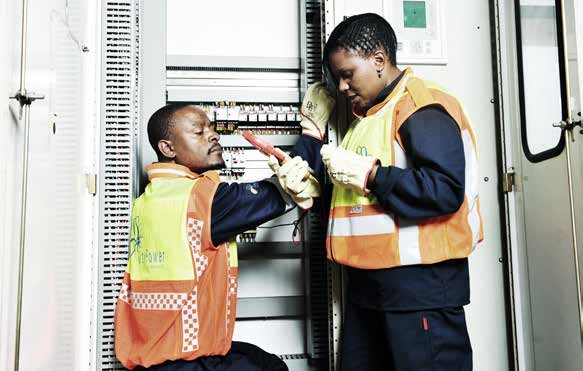
How to identify City Power officials:
- City Power officials always carry their identification cards each with an expiration date.
- Officials will not ask for cash payments for unpaid bills from customers. Payments should strictly be made at City Power offices.
Customers can anonymously report incidents of fraud and corruption or any suspicious officials to the hotline 0800 002 587 or send an e-mail to anticorruption@tip-offs.com
Meanwhile Ekurhuleni Metropolitan Municipality and the City of Cape Town have experienced similar problems.
"When our officials visit people, they will be wearing municipal gear and will have some sort of identification and there will be a number on their municipal gear that you can call to confirm if they are indeed employees of the municipality,” said Ekurhuleni’s Themba Gadebe.
Spokesperson for the City of Cape Town Priya Reddy said the method used by the people posing as municipal officials is not in line with how the city does its business.
“The city can assure the public that the modus operandi described does not conform to our processes. Our field staff do not handle cash; all such transactions are done at the city’s customer centres or via the appropriate electronic channels.”
Members of the public can verify officials by calling: 0860 103 089 to confirm whether work is indeed being carried out in their area.
BlitzBokke compete in Dubai
BlitzBokke compete in Dubai JoySport
 Following his success at the World Rugby Awards, Seabelo Senatla and his teammates would like to continue on a winning streak as the BlitzBokke competes in the Dubai World Seven Series.
Following his success at the World Rugby Awards, Seabelo Senatla and his teammates would like to continue on a winning streak as the BlitzBokke competes in the Dubai World Seven Series.
The South African speedster was voted the World Rugby Sevens Player of the Year in association with HSBC for 2016.
He follows in the footsteps of teammates Cecil Afrika, who won the Award in 2011 as well as Werner Kok in 2015.
For the Dubai leg of the World Series, the team is grouped in Pool B with the United States Sevens, Scotland Sevens and Uganda Sevens. There are only three teams from the African continent. The other
two teams are Kenya and Uganda.
The Dubai leg of the sevens series will be played from the 2nd of December to the 3rd. After that, the BlitzBokke will host the next edition in Cape Town from 10-11 December.
EPWP is changing lives
EPWP is changing lives andileKholiwe Skom (31) spent seven years unemployed after completing a business college diploma until she found work earlier this year as a school administrative assistant as part of the Expanded Public Works Programme (EPWP).
Recalling the years she tried to get work while volunteering her services at various organisations, she says: “I cry when I think about it.”
Today Skom, who works at Joe Slovo Primary School in Port Elizabeth, is more optimistic. “I think it [the work opportunity] is going to count for something.” 
Sophakama, a non-profit organisation which is funded in part by an allocation from the EPWP, placed her at the school.
Her aim is to use the work experience to get a permanent job. In June and July, she completed training in computers, time management and written business skills at Khanyisela TVET College.
The monthly stipend she receives allows her to take care of her two children aged seven and three.
Enjoy an Injury-free Festive Season
Enjoy an Injury-free Festive Season lebangA long and healthy life for all South Africans!
 Many studies are showing that a greater portion of crashes on South African roads are caused by human factors such as:
Many studies are showing that a greater portion of crashes on South African roads are caused by human factors such as:
Distracted Drivers: Talking on the cell phone, sending a text message, eating, arguments/loud chatting or loud music
Speeding: Ignoring the speed limit – the faster you drive, the slower your reaction will be to stop in time to prevent an accident
Drunk Driving: Drinking makes you lose focus and not function properly – which is very dangerous when operating a vehicle
Rain: Makes it difficult for drivers to see other cars and roads become slippery, which causes vehicles to spin out of control while braking. All drivers know that driving in rainy conditions is dangerous and that extra careful driving care is required
Running Red Lights: Red means stop – but drivers speed up when they approach a yellow light with the excuse of “being in a hurry”.
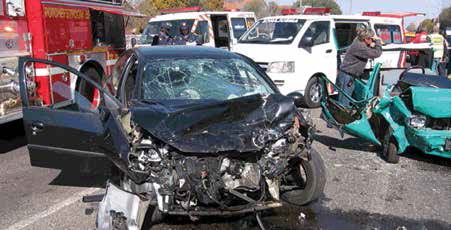 Road crashes not only impact the lives of family and friends of those involved, they also affect the cost of proper, adequate healthcare provision.
Road crashes not only impact the lives of family and friends of those involved, they also affect the cost of proper, adequate healthcare provision.
We cannot control the condition of the roads we use, and it is rare to correctly anticipate the driving of other motorists, so it is up to each one of us as drivers to make an individual effort collectively to drive safely, to have a greater impact on our healthcare system and infrastructure.
It’s not only the victim who suffers as a result of a serious injury or death on our roads. While negative emotions obviously affect the person involved in the collision, the families of these victims often present more pronounced psychological suffering than the victims themselves.
It is frequently the case that someone who feels out of control or unable to help a loved one, suffers similar traumatic symptoms to those who actually go through the experience.
Trauma and Violence
Trauma and violence are widespread, harmful, and create costly public health concerns. They have no boundaries with regard to age, gender, socioeconomic status, race, ethnicity or sexual orientation. Trauma is a common experience for adults and children in South Africa, particularly urban areas and communities, and it is especially common in the lives of people with substance use disorders. For this reason, the need to address trauma is increasingly seen as an important part of effective behavioural healthcare.
Trauma and Mental Health
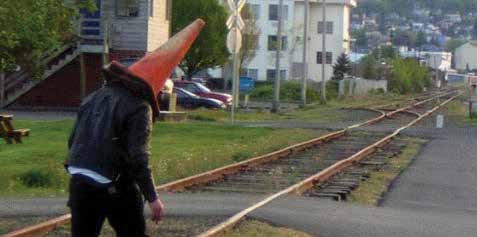 Mental health implications such as depression, anger, suicidal feelings, anxiety attacks and loss of drive are more common in the relatives of victims left with disabilities than the victims themselves.
Mental health implications such as depression, anger, suicidal feelings, anxiety attacks and loss of drive are more common in the relatives of victims left with disabilities than the victims themselves.
Traumatic experiences are associated with both behavioural health and chronic physical health conditions, especially those traumatic events that occur during childhood.
Substance use (such as smoking, excessive alcohol use and taking drugs), mental health problems (such as depression, anxiety or PTSD), and other risky behaviours (such as self-injury and risky sexual encounters) have been linked with traumatic experiences. Because these behavioural health concerns can present challenges in relationships, careers and other aspects of life, it is important to understand the nature and impact of trauma, and to explore healing.
Risky Behaviours During the Festive Period
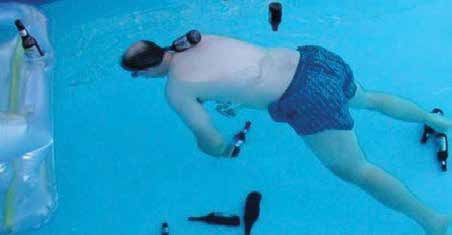 Certain risky behaviours tend to increase during the festive period. During this time, there are more incidents of:
Certain risky behaviours tend to increase during the festive period. During this time, there are more incidents of:
- Domestic violence
- Rape and physical abuse of women and young girls
- Excessive use of alcohol
- Unprotected sex
- Pedestrian deaths due to drinking and walking in the streets
- Car crashes
Quadruple Burden of Disease
Violence and Trauma together are a public health priority and part of the country’s quadruple burden of disease.
It rests upon all of us to reduce the pervasive, harmful and costly impact of violence and trauma to our society and its resources.
Government is creating work
Government is creating work andileGOVERNMENT’S EXTENDED Public Works Programme (EPWP) has had a positive impact on the lives of many young people across the country.
Between its inception in 2004 and the end of the second phase in 2014, the Expanded Public Works Programme (EPWP) produced more than 5.6 million work opportunities.
The third phase of the Expanded Public Works Programme (EPWP), which kicked off in 2014, is expected to produce a further six million work opportunities by 2019, with a third of these already having been created by the end of June this year.
The third phase of the EPWP envisages an improved focus on training through collaboration with Technical Vocational Education and Training (TVET) colleges and other institutions, in an attempt to improve the quality of training courses by offering accredited training providers.
The EPWP is one of government's programmes aimed at providing poverty and income relief through temporary work for the unemployed. 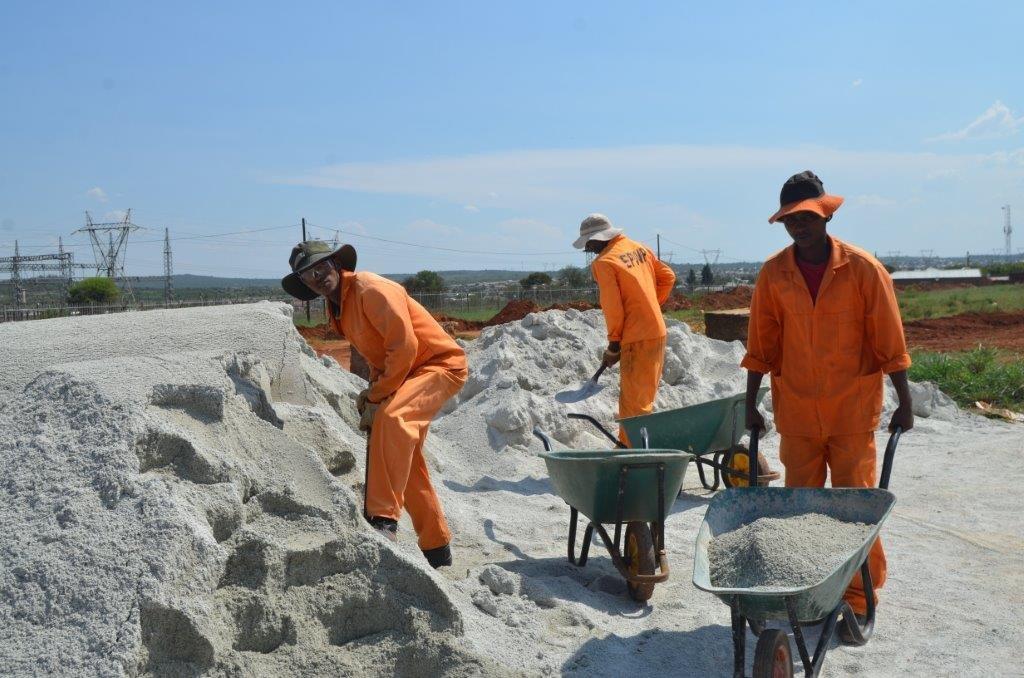
The Department of Public Works did a mid-term evaluation of the EPWP in 2011. It found that almost half of all beneficiaries indicated that their financial situation and that of their families had improved after they participated in the programme.
Importantly, the department projects that South Africa’s unemployment rate would have been 2.8 percentage points higher in 2012 had it not been for the EPWP.
The review also found that the programme’s second phase lowered the poverty rate by less than 0.5 percent. The department attributed this partly to the programme providing job opportunities for only about 2.5 percent of the poor in the country or about seven percent of unemployed people.
The average job during the second phase lasted only 65 days, at an average daily wage of R62. By June this year the average had climbed to R105.85 a day, according to statistics from the department.
The department estimates that since the programme’s inception over R200 billion has been paid to beneficiaries in the form of stipends.
Moreover; the Department of Environmental Affairs’ EPWP initiative, Working for Water, has helped clear 2.8 million hectares of land of invasive species since its inception in 1995.
This has helped save over 180 million cubic metres of water a year (about the size of Hartebeespoort Dam), estimates Christo Marais, the Department’s Chief Director of Natural Resource Management Programmes. In 2015/16: over 69 000 people participated in the programme.
HIV vaccine trials under way
HIV vaccine trials under way andileSouth Africa is playing a leading role in HIV vaccine research.
As the world observes World AIDS Day on 1 December, South Africa will reflect on the great strides made in reducing the spread and impact of the epidemic.
In line with this, South Africa has started ground-breaking HIV vaccine trials to fight the disease.
Speaking in Parliament recently, Deputy President Cyril Ramaphosa said the HIV vaccine trials are a major boost to the fight against AIDS.
“This vaccine trial is regarded by many as the most scientific study in the world on HIV.
“But what is significant about it, is that it is led by South African scientists in almost all aspects of this research,” he said. 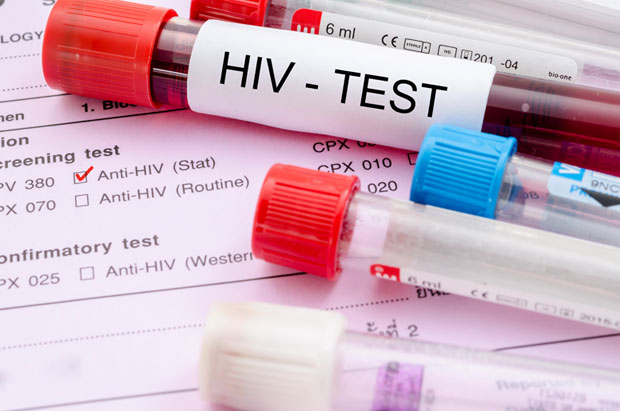
The Deputy President said the research and the trial of the HIV vaccine will enrol 4 500 HIV-negative South Africans between the ages of 18 and 35 in 18 sites across the country.
He said the research will be done under the strictest ethical standards for scientific research over a period of 20 months.
Half of the participants will receive five doses of the vaccine, while the remaining 2 250 will receive a placebo.
“The participants will be followed up for three years to ensure the efficacy of the vaccine.
“The estimated cost of the trial is around R135 million and it is being done in partnership with private sector players and the public sector,” he said.
The first trial using a similar vaccine was completed in Thailand seven years ago and reduced HIV transmission by 39 percent.
“In our trial, scientists expect the vaccine to be at least 50 percent effective but hope that it will be much more than 50 percent.
“The leading role that South Africa is playing in vaccine research is the result of ongoing investment in HIV vaccine development over many years,” he said.
How the programme will be funded
The Deputy President said in 1999, a programme called the South African AIDS Vaccine Initiative was established with funding from the departments of Health and Science and Technology (DST), with the support of development partners in the private sector.
He said the initiative has done much to lay the ground work for the current trials that government has embarked on.
“Today, all government funding for HIV vaccine research is channelled through the South African Medical Research Council.
“These include earmarked funds from National Treasury and funds from the DST.”
He added that the total investment into the vaccine is around R35 million for 2014/15 and R31 million for 2015/16.
In addition to this, the research has received support from the private sector, with the US National Institute of Health contributing more than R1 billion.
He added that the HIV vaccine will become the most effective prevention method to reduce HIV infections. The results of the trial will, however, only start coming through in around 2022.
“There is work to be done right now. The start of this vaccine trial gives us great hope but it should never make us complacent,” he said.
He said government has no choice but to increase its global investment in HIV treatment as well as prevention in order to end AIDS by 2030.
“All these great ground-breaking developments are done under the auspices of the SA AIDS Vaccine Initiative.
“The account I have given is testament to the progress we have made against the benchmarks that we set ourselves as we set up the vaccine initiative.”
Implementation key for next AU Commissioner
Implementation key for next AU Commissioner JoyInternational Relations
Outgoing African Union (AU) Commission Chairperson Dr Nkosazana Dlamini Zuma has had a successful tenure.
With just one month until her tenure ends, AU Commission Chairperson Dr Nkosazana Dlamini Zuma has one gem of advice for her successor: implementation.
“It would help the continent if whoever comes [in as chairperson] continues with what has been done and agreed upon. The general priorities are there in terms of the African Union Agenda 2063 and the first 10-year plan.
“Some of the plans need to be achieved before others, such as the silencing of the guns, and then there is the skills revolution and infrastructure. Focus should be on implementation,” Dlamini Zuma told the media on the sidelines of the African Editors Forum held in Pretoria recently.
Dlamini Zuma concludes her four-year tenure in January 2017.
When she took over the position in 2012, Dlamini Zuma boasted many firsts: the first woman to head the AU; the first head of the AU Commission from Southern Africa and the first head of the AU Commission with liberation credentials.
Under Dlamini Zuma, the AU launched the bolder and more ambitious plan for the next five decades, Agenda 2063, which is a strategic framework for inclusive growth and sustainable development for Africa’s transformation.
The commission, under Dlamini Zuma’s guidance, has also been credited with organising exemplary summits and events that start on time with better agenda management for leaders. But there has been criticism from some quarters of what has been described as the AU “missing in action” on peace, security and governance issues faced by member states.
Asked to reflect on this, Dlamini Zuma said one cannot change the world in four years.
“In four years, I talked about education and investing in people. Although it was member states that had to implement this, I am happy that it is understood by everybody.
“I also talked about agriculture. I can say that in the four years, we have seen an increase in that. We talked about infrastructure, energy transport, intra-Africa trade, women and youth and active citizens - all of which are being implemented.”
Her proudest highlight, however, is the self-funding of the commission by the member states.
“We could not have an organisation funded by other people, who might have other agendas of their own. I’m very proud to say that a decision has been taken last year [for us to] fund our organisation.”
Last year, the leaders agreed to raise R15 billion a year to fund the AU Commission. They also adopted a new formula to charge 0.2 percent import duties to prop up the coffers as a way of minimising the reliance on external funding.
Internship Programme 2017/2018: The Presidency
Internship Programme 2017/2018: The Presidency Joy(Period: 01 April 2017 until 31 March 2018)
STIPEND: The Interns will receive a stipend according to the level of qualification obtained: - National Diploma/ Degree/Honours R4 982.51 per month; - Master’s Degree R6 159.83 per month; and - PhD R7 649.60 per month
POST: PRIVATE OFFICE OF THE PRESIDENT: CHIEF DIRECTORATE: COMMUNIC ATION
REF NO: /1
CENTRE: Pretoria
REQUIREMENTS: Applicants must be in possession of a Degree in Communications.
DUTIES: Provide content and operational support to the advisory support services unit.
POST: PRIVATE OFFICE OF THE PRESIDENT: CHIEF DIRECTORATE: SUPPORT SERVICES
REF NO: /2
CENTRE: Pretoria
REQUIRE MENTS: Applicants must be in possession of a Degree in Public Administration/Records Management.
DUTIES: Provide general administrative support to the Unit, inter alia, making travel arrangements for Protocol Officials, typing, photocopying, faxing, filing of documents, ordering stationery and tracking expenditure. Recording and filling of correspondence.
POST: OFFICE OF THE DEPUTY PRESIDENT: DEPUTY DIRECTOR -GENERAL
REF NO: /3
CENTRE: Pretoria
REQUIREMENTS: Applicants must be in possession of Honours in Economics/Development studies
DUTIES: To provide research support on special projects assigned to the Office of The Deputy President. Drafts reports and support the management team with compiling briefing notes and documents.
POST: OFFICE OF THE DEPUTY PRESIDENT: ADVISORY SUPPORT SER VICE S RE F NO : /4
CENTRE: Pretoria
REQUIRE MENTS: Applicants must be in possession of Honours in Development Studies/Political Studies
DUTIES: Support the research function of the unit on various projects and programme areas, including on international relations, social policy, economics and development planning.
POST: OFFICE OF THE DEPUTY PRESIDENT: COMMUNICATIONS
REF NO: /5
CENTRE: Pretoria
REQUIRE MENTS: Applicants must be in possession of Degree in Communications/Journalism
DUTIES: Support the communications function of the unit in relation to social media, media monitoring and communications research.
POST: CABINET OFFICE : FOSAD
SECRETARIAT REF NO: /6
CENTRE: Pretoria
REQUIRE MENTS: Applicants must be in possession of National Diploma/Degree in Public Administration/Social Sciences
DUTIES: Assist with administrative & logistical arrangements for successful convening & hosting of FOSAD cluster meetings. Provide secretariat services to FOSAD cluster meetings.
POST: PROTOCOL AND CEREMONIAL SERVICES: PROTOCOL & CHANCERY OF ORDERS AND SPECIAL SERVICES
REF NO: /7
CENTRE: Pretoria
REQUIREMENTS: Applicants must be in possession of National Diploma in Administration/International Relations
DUTIES: Provide general administrativ support to the Unit, inter alia, making travel arrangements for Protocol Officials, typing, photocopying, faxing, filing of documents, ordering stationery and tracking expenditure. Liaise with internal and external stakeholders. Assist in Protocol duties during preparation of major events.
POST: EVENTS MANAGEMENT
REF NO: /8
CENTRE: Pretoria
REQUIRE MENTS: Applicants must be in possession of National Diploma/Degree in Public Management/Administration/Public Relations/Events Management/Project Management
DUTIES: Render overall administrative duties and secretariat duties in the unit. Assists in all events and meetings planning assigned to the unit by The Private Office of The President and The Deputy President Office
POST: HOU SEHOLD AND ACCO MMODATION: OR TAMBO HOUSE
REF NO: /9
CENTRE: Pretoria
REQUIREMENTS: Applicants must be in possession of National Diploma/Degree in Hospitality Studies
DUTIES: Provide effective food & beverage & cleaning services.
POST: HOUSEHOLD AND ACCOMMODATION
REF NO: /10
CENTRE: Pretoria
REQUIRE MENTS: Applicants must be in possession of N6/National Diploma/Degree in Electrical/Mechanical Engineering
DUTIE S: Maintenance of electrical, mechanical, plumbing and woodwork
POST: INFORMATION TECHNOLOGY (2 POSTS)
REF NO: /11
CENTRE: Pretoria
RE QUIRE MENTS: Applicants must be in possession of National Diploma/Degree in Information Systems/Systems Development/Business Applications/Information Technology
DUTIES: Development & maintenance of IT systems. Business systems analysis. Database administration. Hardware & software support. Helpdesk operations.
POST: OFFICE OF THE CHIEF OPERATIONS OFFICER
REF NO: /12
Period: 01 April 2017 until 31 March 2018
CENTRE: Pretoria
RE QUIRE MENTS: Applicants must be in possession of National Diploma/Degree Public Management/ Business Administration
DUTIES: Assisting with provision of secretarial and administrative support.
POST: LABOUR RELATIONS, EMPLOYEE HEALTH & WELLNESS: LABOUR RELATIONS
REF NO: /13
CENTRE: Pretoria
RE QUIRE MENTS: Applicants must be in possession of National Diploma/Degree in Labour Relations/Labour Law/LLB
DUTIES: Provide advice on disciplinary & grievance matters. Minutes & report writing Capture cases on PERSAL. Provide administrative support during disciplinary proceedings. Filing of Labour Relations records.
POST: FINANCIAL MANAGEMENT: BUDGETS OFFICE
REF NO: /14
CENTRE: Pretoria
RE QUIRE MENTS: Applicants must be in possession of National Diploma/Degree in Financial Management Accounting/Cost and Management Accounting
DUTIE S: Capture budget on BAS. Prepare in year monitoring reports. Update expenditure on cash flow reports on monthly basis. Assist in compilation of financial statements.
POST: FINANCIAL MANAGEMENT: FINANCIAL ADMINISTRATION (2 POSTS)
REF NO: /15
CENTRE: Pretoria
RE QUIRE MENTS: Applicants must be in possession of National Diploma/Degree in Financial Management Accounting/Cost and Management Accounting
DUTIES: Payments & Systems Control. Travel & Subsistence. PERSAL/TAX
POST: FINANCIAL MANAGEMENT: OFFICE OF THE CFO
REF NO: /16
CENTRE: Pretoria
REQUIREMENTS: Applicants must be in possession of National Diploma/Degree in Office Administration/Office Management
DUTIES: Manage incoming and outgoing correspondence. Arrange meetings with internal and external stakeholders. Record keeping and filling. Making copies and prepare meeting packs.
POST: FINANCIAL MANAGEMENT: CONTRACT MANAGEMENT
REF NO: /17
CENTRE: Pretoria
REQUIRE MENTS: Applicants must be in possession of LLB Degree/Diploma in Supply Chain Management
DUTIES: Contract administration. Contract Management. Filling & Record keeping
POST: FINANCIAL MANAGEMENT: INTERNAL CONTROL (2 POSTS)
REF NO: /18
CENTRE: Pretoria
REQUIRE MENTS: Applicants must be in possession of National Diploma/Degree in Public Finance & Accounting/Business Management/Financial Management/Internal Auditing/Financial Accounting
DUTIES: Maintain & ensure good batch/document control Review compliance of payments with policies Registering of invoices & tracking payments Assist in coordinating internal & external audits. Conducting financial inspection (petty cash inspection and assets verification)
POST: OFFICE OF THE CHIEF OPERATIONS OFFICER
REF NO: /19
CENTRE: Pretoria
REQUIRE MENTS: Applicants must be in possession of National Diploma/Degree in Public Management/Business Administration
DUTIES: Development of Strategic Plans, Annual Performance Plans and Operational Plans. Assisting with provision of secretarial and administrative support
POST: INTERNAL AUDIT
REF NO: /20
CENTRE: Pretoria
REQUIRE MENTS: Applicants must be in possession of National Diploma/Degree in Internal Audit
DUTIES: Execute approved audit procedures, Compile audit working papers
POST: INTERNAL SECURITY
REF NO: /21
CENTRE: Pretoria
REQUIRE MENTS: Applicants must be in possession of National Diploma/Degree in Safety Management/Environmental Health
DUTIES: Implementation of the Occupational Health and Safety
POST: SPOUSAL SUPPORT SERVICES
REF NO: /22
CENTRE: Pretoria
REQUIREMENTS: Applicants must be in possession of National Diploma/Degree in Administration
DUTIES: Office administration, Finance & Supply Chain Management. Document Management.
POST: LEGAL AND EXECUTIVE SERVICES
REF NO: /23
CENTRE: Pretoria
REQUIRE MENTS: Applicants must be in possession of LLB Degree
DUTIES: Research, write legal opinion, drafting contracts
POST: RISK MANAGEMENT (2 POSTS)
REF NO: /24
CENTRE: Pretoria
REQUIREMENTS : Applicants must be in possession of National Diploma/Degree Risk Management/Ad ministration/Auditing/Commerce
DUTIE S: Coordinate risk management processes. Assist during the risk identification and assessment across the organization. Conduct fraud detection reviews. General administrative duties
POST: CORPORATE SUPPORT SERVICES: PROCUREMENT
REF NO: /25
CENTRE: Cape Town
REQUIRE MENTS: Applicants must be in possession of National Diploma/ Degree in Supply Chain Management/ Logistics/Purchasing Management
DUTIES: Facilitate the process to obtain operating equipment for residences. Compile procurement requests. Initiate procurement processes. Obtain quotes.
POST: CORPORATE SUPPORT SERVICES: TRANSPORT
REF NO: /26
CENTRE: Cape Town
REQUIRE MENTS: Applicants must be in possession of National Diploma/ Degree in Transport Management/ Fleet Management
DUTIES: Management of transport bookings. Traffic fines, Accidents. Hired & leased vehicles. Flight & accommodation bookings. General administration
POST: CORPORATE SUPPORT SERVICES: INFORMATION TECHNOLOGY
REF NO: /27
CENTRE: Cape Town
RE QUIRE MENTS: Applicants must be in possession of National Diploma/Degree in Information Systems/ Systems Development/Business Applications/ Information Technology
DUTIES: Development & maintenance of IT systems. Business systems analysis. Database administration. Hardware & software support. Helpdesk operations. The Presidency is an equal opportunity, affirmative action employer. It is our intention to promote representivity (race, gender and disability). The candidature of persons whose appointment will promote representivity will receive preference. Candidates with disabilities are encouraged to apply.
APPLICATIONS: The Presidency, Private Bag x1000, Pretoria, 0001 or Hand deliver at 535 Johannes Ramokhoase Street (former Proes Street), Arcadia, Pretoria.
FOR ATTENTION: Mr Nosi Molepo
ENQUIRIES: Ms Felicity Mokwele
(012) 300 5875 and Mr Jimmy Mashavha
(012) 300 5991
CLOSING DATE:
09 December 2016 @ 16h30
NOTE: Applications must be submitted on form Z83 and should be accompanied by certified copies of qualifications, ID as well as a comprehensive CV in order to be considered. It is the applicant’s responsibility to have foreign qualifications evaluated by the South African Qualification Authority (SAQA). Failure to submit the requested documents will result in your application not being considered. Correspondence will be limited to successful candidates only. If you have not been contacted within 3 months after the closing date of this advertisement, please accept that your application was unsuccessful. Shortlisted candidates will be subjected to a pre-employment screening. The outcome of this screening will be considered to determine suitability for employment. WHO SHOULD APPLY?
Unemployed South African graduates/post graduates, with a tertiary qualification in one of the fields of study mentioned in a specific advert, who has not been previously employed under any internship programme.
NOTE: These internships are based in PRETORIA/CAPE TOWN respectively, as indicated. Candidates must be willing and able to find their own accommodation in Pretoria/Cape Town respectively, considering that they will not earn a salary but only a stipend. Each post must be applied for on a separate application. If an application is received where person makes reference to more than one post, only the first reference will be considered.
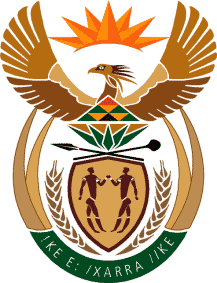
Know your Minister
Know your Minister Joy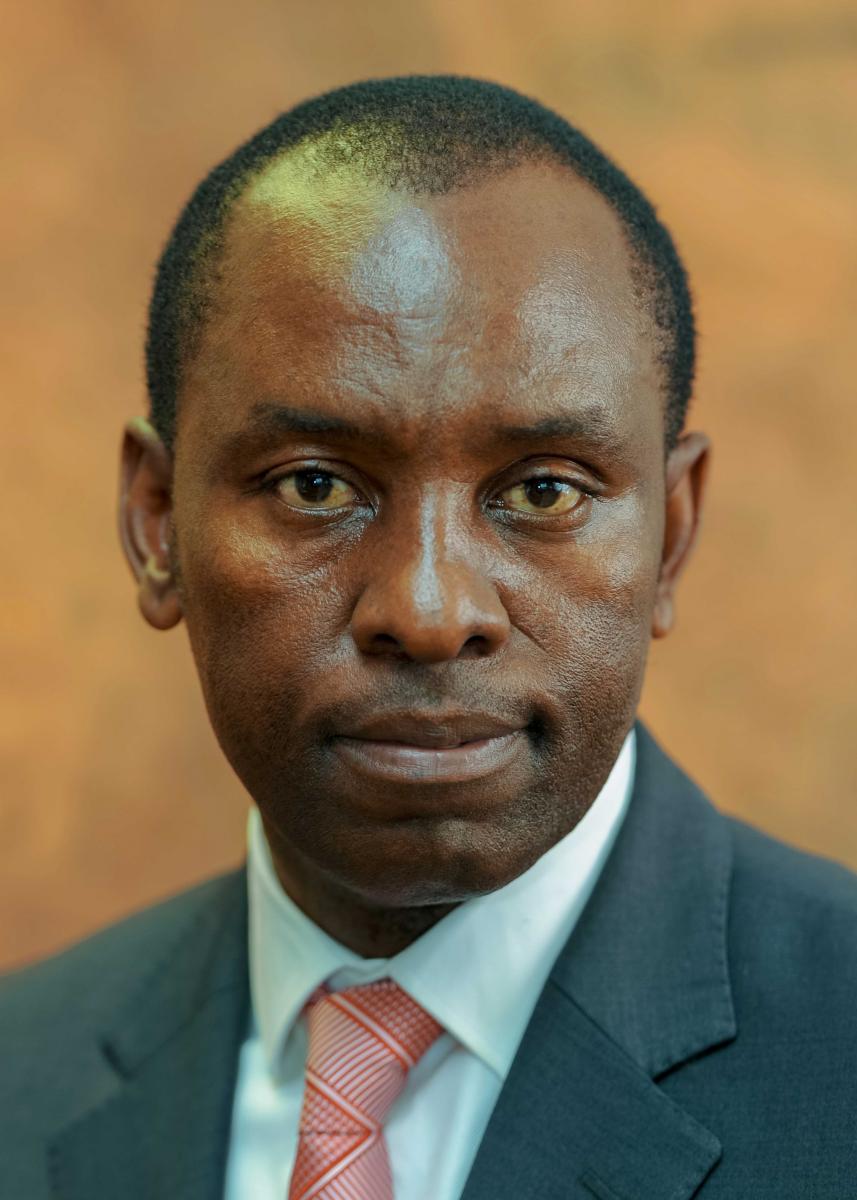 About the Minister
About the Minister
Mr Zwane obtained his secondary teacher's diploma from the South African Teachers' College in Pretoria. He also holds a certificate in Executive Leadership Municipal Development Programme from the University of Pretoria.
Prior to his current position Mr Zwane served as secretary of the ANC's regional executive committee (REC) and subsequently became chairperson of the REC in the Thabo Mofutsanyana region.
Mr Zwane was also a member of the Free State Provincial Legislature from 2014 to 2015. He previously served as the MEC for Agriculture and Rural Development, Economic Development, Tourism and Environmental Affairs in the Free State provincial government.
About the Department
The department is responsible for promoting and regulating minerals and mining for transformation, growth, development and ensure that all South Africans derive sustainable benefit from the country’s mineral wealth.
Light for Reiger Park residents
Light for Reiger Park residents andileTHE OLD SAYING, light at the end of the tunnel holds true for residents for Vaal Huise in Reiger Park, Boksburg.
After spending almost a decade without electricity, 12 households in the informal settlement switched on lights for the first time.
To celebrate the special moment in their lives, Mayor of Ekurhuleni Mzwandile Masina joined the residents for the switch on.
For Lucille Ruiters (60) the days of using candles will be a thing of the past and having electricity in her house will improve her life.
"The municipality has indeed delivered us from the days of using hazardous sources of power such as paraffin stoves, coal and candles. I have a fridge, stove and a TV. Our lives have significantly changed," she said.
The municipality spent R120 000 on electrifying the informal settlement. 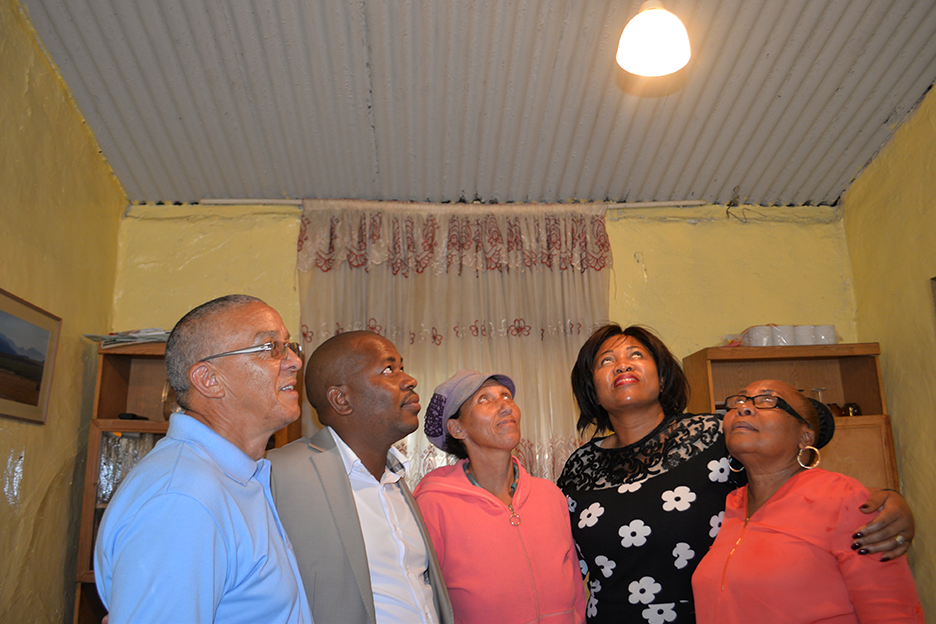
Mayor Masina urged the residents to use electricity sparingly to avoid putting the grid under pressure.
"We have heard your request for electrical services. Now we ask that you avoid illegal connections. If you have backyard dwellers make sure their electricity is connected legally following the correct procedures," said Mayor Masina.
The project included the installation of underground cables, pre-paid meters and projective boxes.
The projective boxes will supply the main distribution box inside the houses. The households were also fitted with standard ready-boards that provide three plug points and a light in the house.
Residents will receive 100 kilowatts of free basic electricity with every month's first purchase ,which is sufficient for having the lights on at night, watching TV on average for three hours and boiling the kettle at least four times before using their prepaid token.
Living positively with HIV
Living positively with HIV andileDESPITE THE SUCCESS in saving lives by providing free treatment for people living with HIV and Aids, more still needs to be done to fight the disease.
By the age of 17, Lebohang Motsumi was already HIV positive and when she turned 19, she was a teenage mother.
Motsumi’s story echoes that of many other young South African women who are between the ages of 15-24 and living with HIV and Aids.
This is the group that the Department of Health considers to be the most vulnerable to sexually transmitted infections, teenage pregnancy and other social ills.
Earlier this year, Deputy President Cyril Ramaphosa launched a national campaign to prevent HIV among young women and adolescent girls.
It is estimated that nearly 2 000 girls and young women between the ages of 15 and 24 get infected with HIV in this country each week.
The campaign seeks to reduce the interlinked problems of HIV infections, school dropouts, teenage pregnancies and gender-based violence and to maximise health, education and economic opportunities for young women and adolescent girls.
Motsumi, who originates from Lindeni in Johannesburg, saID at the age of 17 she thought she knew it all.
“I dated a celebrity. It felt good and I thought finally my dream would come true. I was going to become a famous dancer. Instead, my worst nightmare began.
“I had unprotected sexual intercourse with this guy, and only discovered later that he was HIV positive.”
Motsumi added she never got tested because she believed she was superior to the virus.
“I thought being HIV positive was for prostitutes, those who were sleeping around and those from poor backgrounds. I continued to live my life as normal, as if nothing had happened. Instead of getting tested, I continued having sex and if there was no condom, I would still go on.”
In 2009, Motsumi’s life changed dramatically when she discovered her HIV status.
“I tried to commit suicide, but failed. I just got really sick.”
Her CD4 count was low and she started antiretroviral treatment. “Not only was I dealing with the fact that I was HIV positive, but I was also pregnant and was supposed to be preparing for my matric exams." Motsumi experienced a few health scares before she got better and decided to take better care of herself.
“I joined a youth support group at Helen Joseph hospital and that made me realise I was not the only young person living with this virus.
“In 2012, with the backing of my support group, I decided that I wanted to disclose my status at a public gathering,” she said, adding that she was motivated by her desire to help change the lives of other young people.
“It makes me feel good that my story can help other young people infected with and affected by HIV, and those who are still uneducated about the virus.”
Motsumi, who is now 27, works as a trainer and programme assistant for Zaza, an initiative sponsored by the National Department of Health which focuses on young women.
News in Brief
News in Brief andileR212m for farmers in drought-stricken provinces
The Department of Agriculture, Forestry and Fisheries has allocated R212 million to assist provinces that have been severely affected by the drought.
The money is to be used for animal feed in seven provinces including the Free State (R31 million), KwaZulu-Natal (R23 million), Limpopo (R28 million), Mpumalanga (R26 million), North West (R38 million), Northern Cape, Eastern Cape (R29 million) and the Western Cape (R12 million).
Home Affairs grants blanket extension for study visas
The Department of Home Affairs has granted a blanket extension until 31 March 2017 on all visas issued for the purpose of studies at tertiary institutions in South Africa.
The extension applies to all study visas with an expiry date of, or prior to, 31 December 2016, and it is on condition that the date of departure from South Africa is not later than 31 March 2017. For more information, call: 0800 60 11 90
Proteas prepare for battle
Proteas prepare for battle Joy Sport
Sport
Fresh from the empathic series win in Australia, the Proteas will want to use home-ground advantage when they welcome Sri Lanka for an incoming series.
The two teams will play 11 matches between December 2016 and February 2017. There will be three test matches followed by three T20 matches and five one day internationals (ODI).
The two teams are currently ranked 5th and 6th and would like to improve their rankings. South Africa is just one ranking above Sri Lanka on the test rankings and 2nd in the ODI rankings, while Sri Lanka is ranked a lowly 6th in the same format. On the T20 circuit, South Africa is ranked 3rd while their opponents are ranked 8th.
Fixtures for test matches:
Date: 26th–30th December 2016
Time: 10h00
Venue: St George’s Park,
Port Elizabeth
Date: 2nd–6th January 2017
Time: 10h00
Venue: Newlands, Cape Town
Date:12th – 16th January 2017
Time: 10h00
Venue: The Wanderers Stadium, Johannesburg
Fixtures for the T20s:
Date: 20 January 2017
Time: 18h00
Venue: SuperSport Park, Centurion
Date: 22 January 2017
Time: 14h30
Venue: The Wanderers Stadium, Johannesburg
Date: 25 January 2017
Time: 18h00
Venue: Newlands, Cape Town
Fixtures for ODIs:
Date: 28 January 2017
Time: 10h00
Venue: St George’s Park, Port Elizabeth
Date: 01 February 2017
Time: 13h30
Venue: Kingsmead, Durban
Date: 04 February 2017
Time: 13h30
Venue: The Wanderers
Stadium, Johannesburg
Date: 07 February 2017
Time: 13h30
Venue: Newlands, Cape Town
Date: 10 February 2017
Time: 13h30
Venue: SuperSport Park, Centurion
Protect yourself from abuse
Protect yourself from abuse lebangWith the 16 Days of Activism for No Violence against Women and Children campaign still underway, the spotlight is on the safety of women and children.
In line with this, the Department of Justice and Constitutional Development has shared safety tips for women who are in abusive relationships.
Your safety plan:
1. Safety when preparing to escape
- Develop an escape plan.
- Get an escape bag, pack all emergency items and store the bag safely or keep it with a trusted person.
- Secure an escape place that is unknown to the abuser.
- Choose two rescue persons to alert whenever the abuse occurs.
- Clear every room of all harmful/dangerous items.
- If unemployed, find ways of making an income.
2. Safety during a violent attack
- Quickly move to a low-risk area or towards an escape route. Stay away from places like the kitchen where knives and other dangerous items are usually kept.
- Quickly raise the alarm.
- Quickly grab your escape bag and escape, only when it is safe to do so.
- If injured, ensure that you get medical help and ask your doctor to record your injuries or take photos of the injuries.
- If sexually abused, ensure that you do not take a bath or dispose of any clothing item until all evidence is taken for DNA purposes.
3. Safety at your home
- When you are not staying with the abuser:
- Change door locks if the abuser has access to your house keys.
- Install or improve the security system in your house.
- Ask people you trust to call you or the police if they see the abuser entering your premises.
- Teach your children or domestic helper what to do if the abuser enters your premises.
- When you are living with the abuser:
- Avoid being alone with the abuser.
- Teach your children or persons you stay with how to get help when a violent attack occurs.
4. Safety with a protection order
- Quickly apply for a protection order.
- If necessary, ask the magistrate not to disclose your new residential address, or to allow the abuser to enter your shared residence or part thereof, for example the main bedroom.
- Upon violation of the protection order, quickly report such violation to the nearest police station. Go to the police with a copy of the order and the suspended warrant of arrest.
5. Safety at the workplace, school or in public
- When the protection order prevents the abuser from entering your workplace or school:
- Provide the head of security/your boss/shop steward/principal or any relevant person with the copy of the protection order and a recent photo of the abuser, if necessary.
- Ask a colleague/school mate to accompany you when travelling to and from work or school.
- Change your shopping routine or place.
- Avoid being alone in public.
6. Safety and drug/alcohol abuse
- If you have a drug/alcohol problem, you must:
- Quickly seek help from the relevant specialists or organisations such as SANCA 011 781 6410 or AA 086 143 5722.
- Join a support group or participate in any healing programme.
- Avoid taking drugs/alcohol.
7. Safety and emotional health
- To protect or restore your emotional health:
- Take a walk, drive, bath or do some physical exercise.
- Go to church or pray.
- Read an interesting book/magazine.
- Volunteer in a community activity.
- Talk to a person you trust e.g. pastor, psychologist, counsellor, etc.
8. Your emergency items are:
- ID book, driver’s licence/passport.
- Certified copy of protection order/maintenance number.
- Medical aid, hospital/or clinic card.
- Duplicate keys, taxi fee, or a bus/train ticket.
- Cash or bank cards, e.g. ATM, credit or cheque card.
- Old age pension or disability/child support grant.
- Public phone card or alternative cellphone sim card.
- Address and phone book with emergency numbers.
- Birth/adoption or marriage certificate/antenuptial contract/divorce decree.
- Essential clothing items.
- Kids’ spare school uniform, books, reports, toys etc.
- Essential medication, prescription.
R1 billion for SA's wetlands
R1 billion for SA's wetlands andileGovernment is investing in programmes that fix the country’s wetlands and create jobs in the process.
The Department of Environmental Affairs’ Working for Wetlands Programme has invested R1 billion into the rehabilitation of 1 200 wetlands and created 25 000 jobs and much-needed training.
The department said that during the 2015/16 financial year alone, the programme successfully managed to rehabilitate 123 wetlands.
“In the 2015/16 financial year, Working for Wetlands generated over 220 000 person days; of which over 10 000 were training person days. A total of 3 233 jobs were created in 2015/16 with a budget allocation of R110 601 659,” the department said.
Wetlands are areas where water covers the soil, or is present either at or near the surface of the soil all year or for varying periods of time during the year. 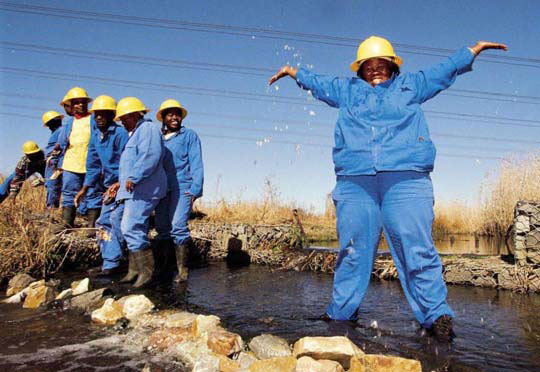
Wetlands are among the most threatened aquatic habitats in South Africa due to bad land management practices, such as effluent disposal, overgrazing, unsustainable crop production, pollution, urban development and erosion.
They are ecologically important as they moderate water flow and regulate water quality. They store water during wet periods, preventing floods and ensuring supply during droughts like the one South Africa is currently experiencing.
Working for Wetlands Programme
The Working for Wetlands Programme is aimed at protecting, promoting wise-use and rehabilitating degraded wetlands all over the country.
The programme started in 2000 with a small number of rehabilitation interventions, but has grown to involve over 450 interventions each year, which include over 120 wetlands in all nine provinces.
Currently, the bulk of the allocated budget goes into the rehabilitation of degraded wetlands and in the process jobs are created and are skilled and trained.
Some of the future plans include increasing the programme’s footprint, expanding into other areas and finding simpler and cost-effective interventions.
SA, Zimbabwe cement economic ties
SA, Zimbabwe cement economic ties JoyInternational Relations
South Africa and Zimbabwe have reaffirmed their commitment to strengthen cooperation across numerous fields, particularly trade, investment and finance.
President Jacob Zuma recently visited Zimbabwe for the inaugural Bi-National Commission (BNC) Summit in Harare. The BNC was co-chaired by President Zuma and Zimbabwean President Robert Mugabe.
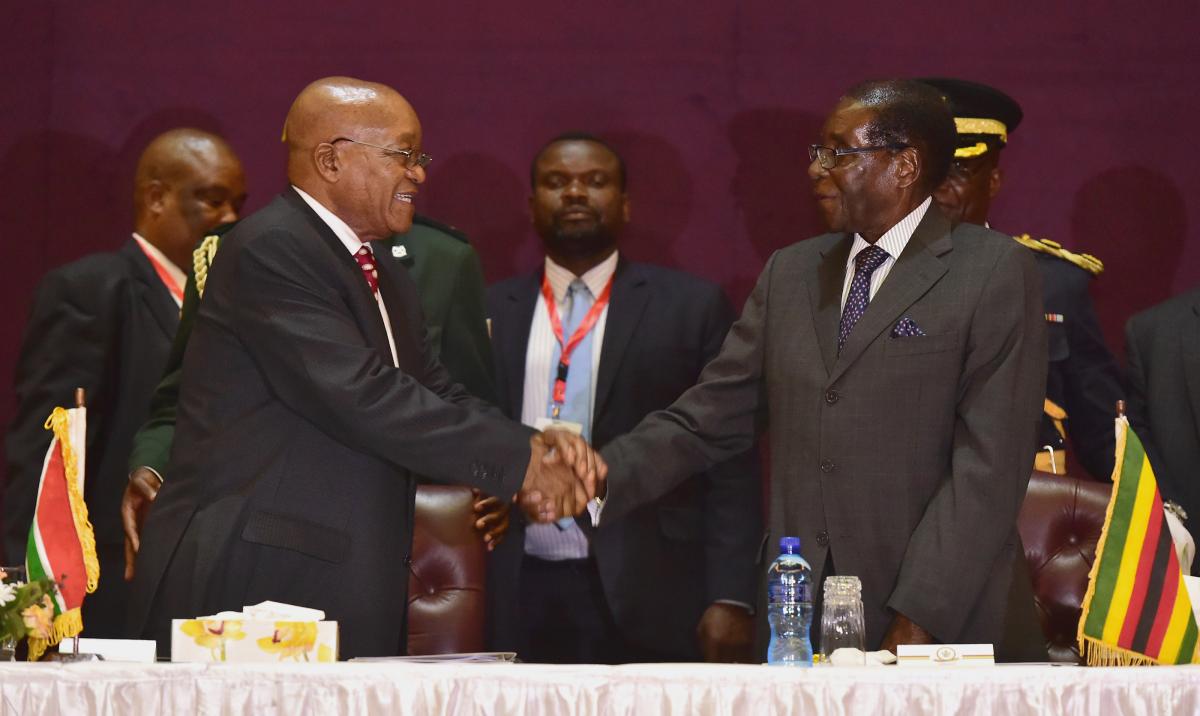 A joint communique issued at the end of the BNC showed that since its inception in 2015, the BNC has made considerable progress in strengthening bilateral cooperation in sectors such as trade, investment, finance, health, labour, education, training, women and gender, sport and recreation, mining, tourism, energy, transport, infrastructure development, information communication technology, science and technology, tourism, immigration, defence and security.
A joint communique issued at the end of the BNC showed that since its inception in 2015, the BNC has made considerable progress in strengthening bilateral cooperation in sectors such as trade, investment, finance, health, labour, education, training, women and gender, sport and recreation, mining, tourism, energy, transport, infrastructure development, information communication technology, science and technology, tourism, immigration, defence and security.
“The two Heads of State expressed satisfaction with the strong historical and fraternal relations existing between the two countries and reiterated their commitment to continue to enhance these relations. They also reviewed a wide range of regional and international issues,” read the communique.
The Presidents noted the growing economic cooperation between the two countries, and agreed to establish a Joint Trade and Investment Committee by the end of the first quarter of 2017.
To date, South Africa and Zimbabwe have signed 38 agreements and memoranda of understanding. President Zuma and President Mugabe urged the various departments to implement, as a matter of urgency, these instruments.
Beitbridge-Musina One-Stop Border Post
The BNC stressed the urgent need for the establishment of a One-Stop Border Post at Beitbridge-Musina, as decided by the Joint Permanent Commission at Victoria Falls in 2009.
“To that end, the commission decided to finalise the modalities for its establishment by the time of the next BNC in 2017,” said the communique.
Drought, wildlife matters
The BNC noted that illegal trade in ivory and other wildlife products remains a concern for both countries. The two countries agreed to further collaborate in finding solutions to the illegal wildlife trade challenges including through joint law enforcement operations.
Sophakama does more with less
Sophakama does more with less andileWith less money to go around, some Expanded Public Works Programme (EPWP) programmes, such as Sophakama (meaning “we will rise”), might provide a key lesson on how to do more with less.
The non-profit organisation was founded in 2005 in KwaZakhele township, Port Elizabeth, by a group of women with funding from Oxfam and some local corporate support. It began by providing home-based care to households affected by HIV and AIDS, with five volunteers.
In 2012, it was able to expand participant numbers when the private funders were joined by the Department of Public Works.
Working with local clinics, fieldworkers help counsel treatment defaulters. The organisation also runs food gardens for those receiving treatment. 
Sophakama Manager Michael Matanzima said 360 participants are employed.
Across the two programmes – the home-based care programme and the new school ambassador programme –EPWP funds cover about 80 percent of wages, while the rest is covered by Terre des Hommes, a global organisation that supports disadvantaged children.
In the schools programme, which covers 47 Port Elizabeth schools, those employed offer administrative assistance, cleaning and guarding services.
Continuous training is offered in areas such as grass cutting, tree felling and computer literacy. The organisation, with help from the Nelson Mandela Bay Metro and the Department of Public Works, is also looking to help grass cutters to form cooperatives.
Matanzima added that some of those doing administrative work find full-time work at a school.
He said 200 people are on the waiting list to join Sophakama.
South Africa on the right track
South Africa on the right track andileFROM THE UNION BUILDINGS a message from the President
Government has rolled up its sleeves and pulled up its socks to bring more services and opportunities to greater numbers of South Africans.
As South Africans, we should all be encouraged by a combination of indicators from government departments and provinces, on the one hand, and the Auditor-General, on the other, that shows we are steadily marching in the right direction.
Just a few days ago, Cabinet received quarterly reports from departments showing how we are implementing our Programme of Action, in line with the National Development Plan.
We learned that between 1 July and 30 September, the Department of Small Business Development supported 149 enterprises. In addition, 104 cooperatives were supported through the Co-operative Incentive Scheme. These interventions are unlocking the potential of SMMEs, cooperatives, township and rural enterprises.
In the agricultural sector, 172 new agricultural enterprises and 23 non-agricultural enterprises were supported through various initiatives.
An additional 337 existing SMMEs were identified and will be supported with training and market access. Furthermore, 240 cooperatives were supported through the Cooperative Incentive Scheme.
Also in the quarter under review, Invest SA facilitated of R18.2 billion mostly in large scale gas-to-power projects. 
In the fight against crime and the quest for a safer South Africa where all citizens are and feel safe, Cabinet learned that almost all – 98.9 percent – of police stations have functional Community Police Forums which contribute to a safe and secure environment for communities.
Progress is being continually made in the fight against corruption. Fifty-eight (58) persons were convicted in relation to reducing corruption amongst government officials in the reporting period. Five (5) persons were convicted for corruption or offences relating to corruption where the amount involved per case(s) is more than R5 million and value of freezing orders obtained are R185 million.
Government is also making sound progress in restoring the dignity of those who suffered during apartheid.
In the three months to September, 54 400 hectares (ha) of strategically located land was acquired and allocated and 51 188 ha were allocated to smallholder producers. 6 530 ha of the acquired land was allocated to farm dwellers and labour tenants.
Of the 112 land claims that were settled 57 were in the rural areas benefiting 2 553 people in 467 households.
Recently, the Chief Land Claims Commissioner approving the Phase 2 Submission for the settlement of the Masinenge Community land claim and the Mtshali Family claim through the payment of financial compensation.
The total value of the Masinenge settlement is R7, 100,608.00 for the benefit of 64 households who were verified as victims of land dispossession. The Commission on Restitution of Land Rights has, during the period 1 April 2016 to 31 October 2016 paid-out close to a billion rand in compensation to land claimants who were dispossessed of their rights in land.
Apart from government’s own assessments, the Institute of Race Relations recent report, “Life in South Africa: Reasons for Hope” looked at how life in South Africa has improved in the past 20 years.
The total number of people with jobs doubled from 7.9-million in 1994 to 15.6-million in 2015; access to formal housing increased by 131.3 percent from 1996 to 2016; university enrolment rates increased by 281.4 percent from 211,756 in 1985 to 807,663 in 2014; the number of new HIV infections dropped from 646,806 in 1999 to 321,497 in 2015; there has been a 62.5 percent increase in healthcare professionals in the public sector between 2000 to 2015; and the murder rate has fallen by 49.3 percent since 1994.
At the same time as Cabinet received these reports, the Auditor-General (AG) reported a progressive, marginal three-year improvement in national and provincial government audit results.
The AG, Kimi Makwetu, reported that between 2013-14 to 2015-16, 24 percent of departments and entities improved their audit results; 14 percent regressed; while the results of the majority (62 percent) remained unchanged. During this period, public entities fared the best with continuous improvement year on year; however, the audit results of departments regressed in 2015-16.
The AG commended departments for improving leadership and for addressing weaknesses in financial controls.
These achievements tell a story of a South Africa where the real challenges we face in addressing poverty, unemployment an inequality are being defeated by a government working together with communities, labour, business and our regional and international partners.
Our reasons for hope are growing by the day, project by project, and our changing reality is the product of the inspiration and hard work of every South African who plays their part in our nation’s journey.
FAST FACT
172 new agricultural enterprises and 23 non-agricultural enterprises were supported through various initiatives.
Spend wisely this festive season
Spend wisely this festive season lebangThe Festive Season is a time when many feel tempted to spend all their money.
As the festive season approaches consumers need to be smarter with how they spend their money and think about the deals that they get into.
The Credit Ombud, Nicky Lala Mohan says that many households rely on credit to cover their day-to-day expenses, which suggests that they are not living according to their means.
“Overspending during this time of year is often an emotional response. Consumers feel that they have worked hard all year and deserve to spoil themselves and family members,” said Lala Mohan.
 However, consumers need to be warned that it is irresponsible and dangerous to spend too much on credit just because it seems like everybody else is doing so in the shopping malls.
However, consumers need to be warned that it is irresponsible and dangerous to spend too much on credit just because it seems like everybody else is doing so in the shopping malls.
“What consumers should realise is that come the end of January, you have to pay back the loans as well as school fees etc. If you cannot afford the repayments and once you fall behind, it can be very costly in terms of interests.
“This is usually the first step to a debt spiral. If it’s not in your budget, don’t borrow to get it,” warned Lala-Mohan.
Tips to spend wisely:
- Avoid new debt
- Have a festive budget
- Save for next year’s school requirements: fees, stationery, uniforms?
- Eat at home
- Compare prices
- Be creative with gifts
- Avoid end of season sales.
Stop domestic abuse
Stop domestic abuse lebangDomestic violence is any form of abuse, which includes physical, sexual, emotional, psychological or economic harassment.
 It includes damage to property, stalking and entry into your property without permission or any other abusive or controlling behaviour.
It includes damage to property, stalking and entry into your property without permission or any other abusive or controlling behaviour.
Those who find themselves in abusive relationships can get a protection order from the court.
What is a protection order?
A domestic violence protection order is a document issued by the court, which prevents the abuser from committing an act of domestic violence or enlisting the help of another person to commit any such act.
This may include entering the home shared or a specified part of the home shared by the complainant and the respondent – along with entering the complainant’s place of employment.
How to get a protection order
Step 1: Report your complaint to the local police station
You have a choice to lodge either a criminal case or to apply for a protection order, or both.
If necessary, the police will take you to a medical practitioner to assess injuries that you may have suffered during the abuse. The assessment can be used as evidence. After the assessment, the police officer will refer you to the local Magistrate’s Court to apply for a protection order.
Step 2: Obtaining a protection order
At the Magistrate’s Court, the clerk of the court will assist you to complete an affidavit. The magistrate may decide to issue an interim protection order and a date for a hearing. If the interim protection order is issued, this means that a warrant of arrest can be effected if the respondent acts abusively towards you again.
Step 3: Interim protection order is served on the respondent
The interim protection order will then be served immediately by a police officer, sheriff or clerk of the court to the respondent and will also indicate the date of the hearing.
Step 4: Court proceedings or hearing
During the hearing, you and the respondent will have the opportunity to present your side of the story. The magistrate will then make a decision whether to issue a final protection order or not.
The conditions contained in the final protection order are permanent and can only be changed by a court of law.
Step 5: What happens if the respondent violates the conditions of the final protection order?
You must report the respondent’s actions at the nearest police station.
The respondent can be arrested for violating the protection order.
If you need help, you can call:
- South African Police Service: 10111.
- Childline: 0800 555 555.
- Stop Gender Violence helpline: 0800 150 150.
- Lifeline National Counselling line: 0861 322 322.
Take care of your skin
Take care of your skin andileIn December, people spend a lot of time outdoors enjoying the South African sun and often, they neglect to take the necessary care of their skin.
According to the Council for Scientific and Industrial Research, South Africa could well be heading for the hottest summer on record with temperatures over large parts of the country on average two degrees Celsius higher than normal.
Not only are December and January some of the hottest months of the year in South Africa, but they are skin cancer awareness months.
“Increased temperatures and changing levels of UV (ultraviolet) radiation can result in sunburn and skin damage, which in turn could lead to skin cancer. Those who enjoy spending time outdoors should protect themselves from over exposure to the sun,” warns Dr Guni Goolab, principal officer of the Government Employees Medical Scheme. 
The best way to take care of your skin is to apply sunscreen daily to reduce the risk of developing skin cancer by as much as 50 percent.
Skin cancer is a preventable lifestyle disease and early skin cancer detection can be life-saving.
How to care for your skin:
- Always wear protective clothing, hats and shirts before going out into the sun.
- Even 30 minutes in the sun without protection is too long.
- Exposure to the sun whilst overdressed only adds to skin distress; so do thick lotions and oils, such as petroleum jelly, which prevent moisture evaporation and therefore block pores, resulting in heat rash.
- UVA rays pass through glass. A person sitting near a window (unless tinted for sun screening) is also susceptible to the damaging rays of the sun.
Supplied by Government Employees Medical Scheme.
Taking care of the vulnerable
Taking care of the vulnerable lebangGovernment is boosting efforts to ensure that people with disabilities have access to services that ensure they live normal lives.
 This is in line with the commitments made in the National Development Plan to increase access to services, particularly in quality education and employment for people with disabilities.
This is in line with the commitments made in the National Development Plan to increase access to services, particularly in quality education and employment for people with disabilities.
In December 2015, Cabinet approved the White Paper on the Rights of Persons with Disabilities, which seeks to accelerate transformation and redress the existing inequalities that affect people with disabilities through inclusive programmes.
This year National Disability Rights Awareness Month – celebrated annually between 3 November and 3 December – was commemorated under the theme ‘Persons with disabilities – Equal participants in shaping a sustainable future’.
As part of the launch of Disability Month, the department handed over an accessible multi-media centre for deaf and blind learners at Sibonile School for the Visually Impaired in Gauteng.
There was also a hands-on demonstration on how assistive technology helps people with disabilities to communicate.
Social Development Minister Bathabile Dlamini said the department is creating opportunities for children.
“We are preparing these children for the future because we want them to be able to compete with other children in South Africa.”
Jonas Ndlovu, a learner at the school, said he believes that the computer lab will unleash the learners’ potential.
“We are very grateful for what you have done for the school. This is long overdue and I hope the department will do the same for other schools in the country.”
He added that people living with disabilities should have access to opportunities to ensure that they become all that they want to be.
The disability grant
The disability grant lebangThere are currently over one million people receiving disability grants. People with disabilities not receiving a grant can apply at their local South African Social Security Agency (SASSA) office.
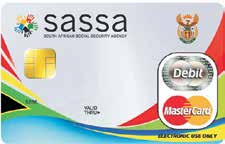 To qualify you must:
To qualify you must:
- be a South African citizen or permanent resident or refugee and living in South Africa at the time of application.
- be between 18 and 59-years-old.
- not be cared for in a state institution.
- have a 13-digit, bar-coded identity document (ID).
- not earn more than R69 000 if you are single or R138 000 if married.
- not have assets worth more than R990 000 if you are single or R1 980 000 if you are married.
- undergo a medical examination where a doctor appointed by the state will assess the degree of your disability.
For more information, visit your nearest SASSA office or call 0800 601 011
Wage increase for domestic workers
Wage increase for domestic workers lebangThe increase in domestic workers’ annual wages that came into effect on 1 December 2016 demonstrates government’s commitment to create decent work.
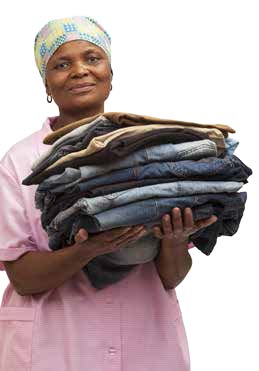 The latest relief ahead of the festive season will be applicable until 30 November 2017.
The latest relief ahead of the festive season will be applicable until 30 November 2017.
According to the Department of Labour, the minimum wage adjustment is in line with the Basic Conditions of Employment Act, which is regulated through the Sectoral Determination.
“Domestic Workers are by law classified as vulnerable, hence the Sectoral Determination governing minimum wage and conditions of employment,” the department said in a statement.
The new sectoral determination of domestic workers prescribes that the minimum wages for domestic workers who work more than 27 ordinary hours per week will earn as follows:
- Area A (those in major metropolitan areas) will earn R12.42 (R11.44: 2015/2016) hourly rate, R559.09 (R514.82: 2015/2016) weekly rate and R2 422.54 (R2 230.70: 2015/2016) monthly rate.
- Area B (those not mentioned in Area A) R11.31 (R10.23: 2015/2016) hourly rate, R508.93 (R460.15: 2015/2016) weekly rate and R2 205.17 (R1 993.82: 2015/2016) monthly rate.
The minimum wages for domestic workers from 1 December 2014 to 30 November 2015 who work 27 ordinary hours per week or less is as follows:
- Area A (those in major metropolitan areas) will earn R14.54 (R13.39: 2015/2016) hourly rate, R392.58 (R361.50: 2015/2016) weekly rate and R1 701.06 (R1 566.35: 2015/2016) monthly rate.
- Area B (those not mentioned in Area A) R13.53 (R12.07: 2015/2016) hourly rate, R360.54 (R325.98: 2015/2016) weekly rate and R1 562.21 (R1 412.49: 2015/2016) monthly rate.
Domestic workers include housekeepers, gardeners, nannies and domestic drivers among others.
Meanwhile, South Africa’s contract cleaning employees’ minimum wages have also been adjusted upward with effect from 1 December 2016. This includes workers in:
- Area A – Metropolitan Councils that include City of Cape Town, Ekurhuleni, City of Johannesburg, City of Tshwane and Nelson Mandela Bay and also Local Councils of Emfuleni, Merafong, Mogale City, Metsimaholo, Randfontein, Stellenbosch and Westonaria – will earn a minimum of R19.38 (R18.01: 2015/2016) per hour.
- Area B – the rates applicable are those as prescribed by the KwaZulu-Natal Contract Cleaning Bargaining Council.
- Area C – which includes the rest of South Africa the minimum rate per hour will be R17.66 (2015/2016: R16.41).